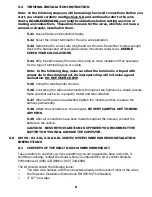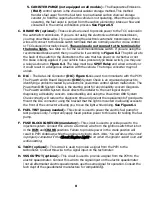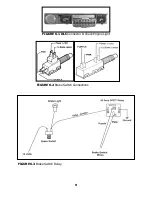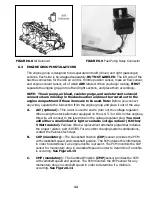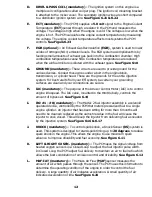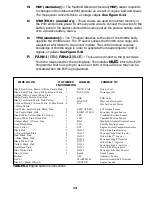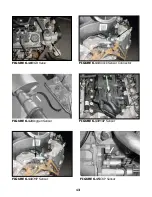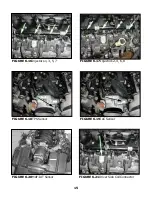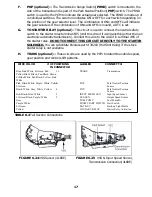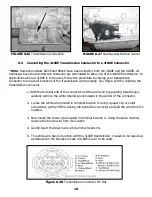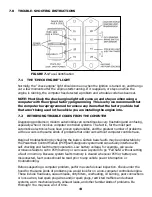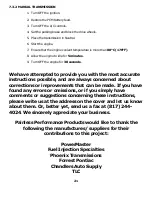
7.0 TROUBLE- SHOOTING INSTRUCTIONS
FIGURE 7.1 Fuse Identification
7.1 THE "CHECK ENGINE" LIGHT
Normally, the "check engine" light should come on when the ignition is turned on, and then go
out a few moments after the engine starts running. If it reappears, or stays on while the
engine is running, the computer has detected a problem and a trouble code has been set.
NOTE: Most likely the check engine light will come on and stay on when using a
computer with the original factory programming. This is why we recommend that
the computer be reprogrammed to remove any items that the factory vehicle had
that aren’t being used in the vehicle you are installing the engine into.
7.2 RETRIEVING TROUBLE CODES FROM THE COMPUTER
Diagnosing problems in modern automobiles can sometimes be very frustrating and confusing,
especially when it involves computer controlled systems. The fact is, for the most part
automotive electronics have been proven quite reliable, and the greatest number of problems
with new cars is the same kinds of problems that older cars without computer controls have.
Begin all troubleshooting by checking the basics. Certain basic faults may be undetectable by
the Powertrain Control Module (PCM) self-diagnostic system and can actually interfere with
self-checking and fault memory operation. Low battery voltage, for example, can cause
erroneous faults to set in PCM memory or can cause a system to go "Fail Safe" without setting
a fault in memory. Because system faults memory is cleared whenever PCM or battery are
disconnected, fault codes should be read prior to any vehicle power interruption or
troubleshooting.
Before suspecting a computer problem, perform a careful visual inspection. Check under the
hood for the same kinds of problems you would look for on a non-computer controlled engine.
These include fluid leaks, vacuum leaks, dirty filters, overheating, oil burning, poor connections
or loose wires, bad spark plug wires and/or spark plugs, restricted mufflers and exhaust
systems, worn mechanical parts, exhaust leaks, and other familiar kinds of problems. Be
thorough! You may save a lot of time.
19


